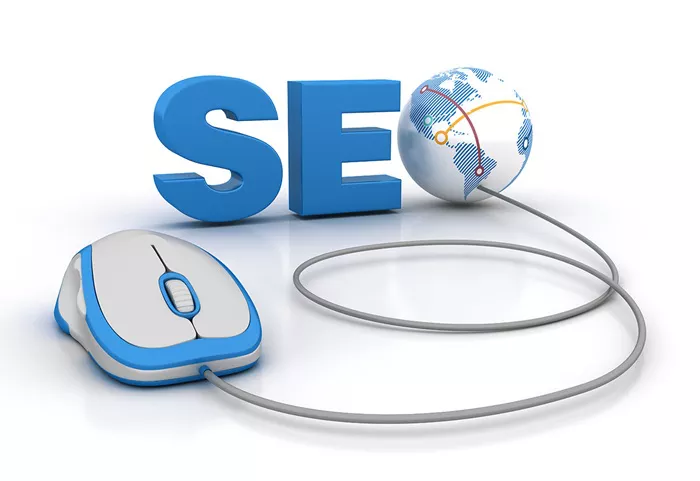As competition in the online space grows, businesses with low search engine rankings risk missing out on valuable projects, potential clients, and profitable opportunities. To help businesses improve their standing on Google and other major search engines, experts have shared actionable SEO tips that can drive success.
Getting Started: Easy Wins for SEO Optimization
Chris Simental, co-founder of RIPE Media, recommends businesses start with simple, effective SEO strategies:
Optimize Your Google Business Profile: Setting up and improving your Google Business profile is free and helps increase visibility on Google Search and Google Maps. You can add photos, business hours, services, and even invite customers to leave reviews.
Create Localized Pages: Even if you only have one location, a page titled “Lumber and Building Supplies in [Your City]” helps Google connect your website to local search queries, improving your relevance in regional searches.
List Your Business on Key Directories: Ensure your business is listed on platforms like Yelp, Yellow Pages, HomeAdvisor, Apple Maps, and Bing Places. These directories are still trusted by Google and can drive traffic to your site.
Start a Blog or FAQ Section: A simple blog or FAQ section that addresses common customer questions—like “What is the best wood for outdoor decks?” or “How do I properly install drywall anchors?”—can significantly enhance your online presence.
Simental also advises not to waste time chasing random backlinks or paying high fees for technical SEO audits. Instead, focus on straightforward strategies, especially as AI-driven search tools become more prevalent. Clear, expert-driven content is now more valuable than ever, as it helps businesses become the best answer to specific market needs.
The Power of Positive Reviews
Francesca Hume, an SEO expert at Invanity based in the UK, emphasizes the importance of positive reviews. Customer reviews are powerful trust signals that not only influence potential customers but also affect search engine rankings. Hume highlights that as Google’s AI-driven search model evolves, search results are becoming more personalized. This shift could lead to more local businesses appearing in search results, boosting local visibility.
Hume also advocates for the growing impact of “social search engine optimization.” More people are using social media platforms like Instagram, LinkedIn, and TikTok as search engines. Google is increasingly using signals from social media to evaluate businesses and recommend products. If your social media profiles are neglected, it’s not too late to revive them.
Clarity Over Creativity
Ryan Gambrill, an SEO expert at creative agency Propel, stresses that the power of SEO lies in its simplicity. You don’t need expensive tools or a large budget to get started. The key is ensuring that your page titles and content clearly convey what your business offers. Gambrill suggests asking yourself two critical questions:
Does my title clearly describe the content we provide?
Would someone use the same terms I’ve used to search for this content on Google?
If not, it’s time to make adjustments. Clarity should take precedence over creativity, as it better aligns with what potential customers will type into Google.
Adapting to AI-Driven Search
David Wright, President of W3 Group Marketing, believes artificial intelligence will fundamentally change search behavior. AI search tools are moving away from being keyword-focused to being context- and answer-driven. For instance, businesses answering specific, long-form questions like “Where can I buy drywall in Dallas?” will fare better in AI-driven search results.
Wright also highlights Google’s “EEAT” principle—Expertise, Authoritativeness, and Trustworthiness—as a key ranking factor. To prepare for this shift, he recommends adding FAQ sections to your website that directly answer customer questions about products, services, or locations. Longer, conversational queries should also be addressed, as these are particularly helpful for voice search.
Speed Optimization and Local Link Building
Michael Alan, SEO Director at Lawless Clicks, emphasizes that Google highly values website speed. A streamlined, mobile-friendly site is crucial because Google rewards fast-loading pages. Alan also suggests acquiring meaningful local backlinks—such as those from your local chamber of commerce, vendors, or industry associations—as they can boost local SEO.
Moreover, Alan advises businesses to familiarize themselves with “schema” markup, which helps Google understand your location and specific products. Even adding local schema to headers or footers can significantly improve local rankings.
Avoiding SEO Pitfalls
Callie Anderson from Uppercut SEO highlights common SEO mistakes to avoid. She warns against using black-hat tactics like link schemes, keyword stuffing, or fake reviews, which can result in penalties from Google. Additionally, duplicating content across different pages or websites can confuse visitors and hurt your SEO efforts. Anderson advocates for focusing on ethical SEO practices that improve user experience and naturally enhance search engine rankings.
Conclusion
Whether optimizing your Google Business profile, engaging on social media, embracing AI-driven search, or focusing on local SEO, businesses must remain agile and up-to-date to stand out in an increasingly competitive online market. By implementing these simple yet powerful SEO strategies, you can significantly improve your business’s online visibility and profitability.
Related Topics
- SEO Attribution Challenges in 2025 and How to Adapt
- How a 41-Year-Old’s Side Hustle Generates $600K Annually ‘The Best Way to Make Money’
- SEO Attribution Challenges in 2025 and How to Adapt

